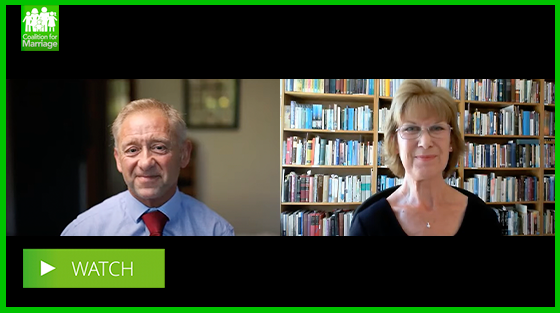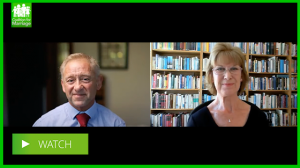Interview with Sharon James: The case against the sexual revolution

This week I’m joined by Dr Sharon James, to review Louise Perry’s important new book, ‘The Case Against the Sexual Revolution’. Sharon, a popular author and speaker in her own right, led the communications role for C4M in the early days of the campaign against redefining marriage.
Beginning with Sharon’s recollections from the campaign, she says the whole thing was about ‘metropolitan elites’ imposing their radical views on the country. She predicted at the time that the moment you remove the importance of marriage between one man and one woman, gender would become a wider issue in society. Imposing these “luxury beliefs”, she goes on, was like removing “the guard rail because one person might bump up against it and get hurt”. The result of the fear of being moralistic, is that, “so many more people end up getting hurt”.
Harm from “the catastrophic effects of radical feminism”, is the theme of ‘The Case Against the Sexual Revolution’ according to Sharon. Written from the perspective of a young, left leaning, non-religious feminist, Sharon explains how the author’s analysis of the data leads to the conclusion that women should get married and stay married. The book is “very clear about the advantages to children to being born in a stable marriage”. Sharon adds that, “anyone who cares about social justice, should be concerned” with what the book highlights.

Echoing the book’s conclusions around male and female sex differences, Sharon tells us that, while “equality of humanity, and equality of dignity and equality of worth” are present across the sexes, there are also “significant differences” between males and females.
“It’s easier to con yourself that we’re the same”, Sharon explains, if working in an office-based environment, where no manual labour is required. But she cites the book’s example of the national American women’s football team, being beaten by FC Dallas under-15 boys.
Concluding her review of the book, Sharon notes that, “the much derided institution of marriage turns out to be really good for women”. This needs to be laid out for women “who have been sold the story that marriage is an evil patriarchal trap from which all women have to be liberated”.
At C4M, we know that biology is fundamental to the definition of marriage, and that marriage is fundamental to the success of society. We challenge the biological lie that anyone can change sex, or have two mums or two dads. They can’t, and that’s just fact, not phobia.
